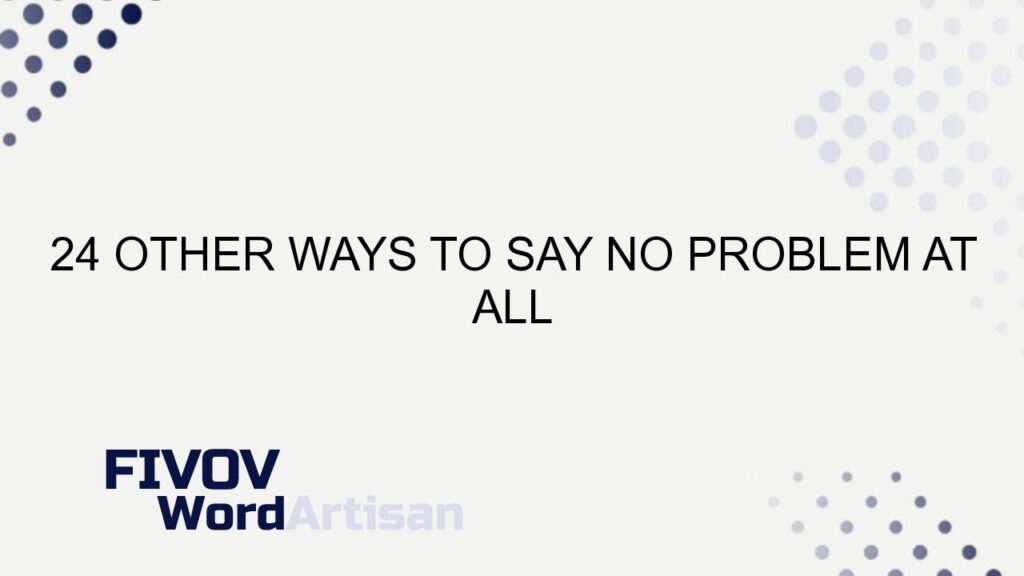Are you attempting to determine if something is feasible but find yourself needing to inquire first? Maybe you’re concerned that the phrase “no problem at all” might not be the most professional way to ascertain if an action can be undertaken.
MY LATEST VIDEOS
Well, you’ve come to the right place to find out more.
Other Ways to Say “No problem at all”
When it comes to finding alternative phrases to express “no problem at all,” there are several professional and courteous options to choose from. Whether you’re in a formal setting or just want to convey a more refined response, here are 24 other ways to articulate the sentiment of “no problem at all” effectively.
1. You’re welcome
This classic phrase is a polite and courteous response to express that there was no trouble in helping or accommodating someone.
2. It was my pleasure
This expression emphasizes that the action was enjoyable and that you were happy to assist.
3. Anytime
Using “anytime” suggests that you are open and willing to help again in the future.
4. It’s nothing
This phrase downplays the effort made and conveys that the assistance was inconsequential.
5. Not at all
A refined and formal way to acknowledge gratitude and downplay the favor.
6. It’s all good
A casual yet friendly way to reassure someone that there is no issue or problem.
7. Glad to help
This phrase communicates that you were pleased to be of assistance.
8. Sure thing
An informal yet affirmative response that indicates a willingness to help.
9. No trouble at all
Similar to “no problem at all,” this phrase conveys that there was no inconvenience in assisting.
10. I’m happy to help
Expresses satisfaction in being able to assist and support others.
11. Think nothing of it
This phrase suggests that the action was insignificant and not worth mentioning.
12. Of course
A polite and affirmative response indicating willingness to help or accommodate.
13. It’s all under control
Confidently reassures that the situation is managed and there is no issue.
14. It’s my duty
Conveys a sense of responsibility and commitment in providing assistance.
15. No need to thank me
This phrase indicates humility and a willingness to help without expecting gratitude.
16. Happy to be of service
Communicates a sense of joy and willingness to accommodate others.
17. Don’t mention it
Suggests that the favor was insignificant and not worthy of acknowledgment.
18. It’s all taken care of
Assures that the matter has been attended to and resolved.
19. I’ve got it covered
Conveys confidence in managing the situation and providing assistance.
20. It’s my pleasure to assist
Emphasizes the enjoyment and satisfaction derived from helping others.
21. You can always count on me
Assures reliability and willingness to be of help in the future.
22. It’s all okay
Conveys assurance that everything is fine and there is no issue.
23. Consider it done
Assures that the task or favor has been completed successfully.
24. It’s all in hand
Reassures that the matter is under control and there is no need for concern.
By employing these alternative phrases, you can effectively convey the sentiment of “no problem at all” in a professional, courteous, and refined manner.
Do you have any specific questions about these alternative phrases, or would you like to explore more ways to articulate professional responses in different contexts? Feel free to reach out to discuss further, and don’t forget to share this valuable information with your colleagues and friends to enhance their professional communication skills.




